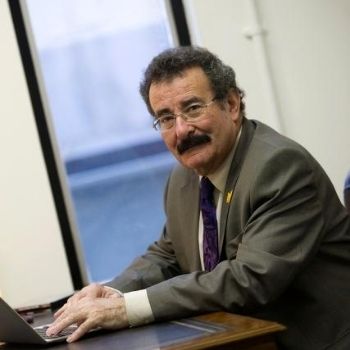Lord Winston is Professor of Science and Society and Emeritus Professor of Fertility Studies at Imperial College London. He is also a medical doctor, author, scientist and television presenter.
His research has developed refined gynecological surgical techniques helping improve fertility treatments, and he is widely recognised for communicating the excitement of science to the public.
Robert Winston has regularly presented and contributed to many television programmes, and is as well known for his broadcast work as for his scientific research. As well as being a regular contributor to science and current affairs programmes, such as Panorama, he has also featured on comedy programmes, such as Have I Got News for You, and presented two programmes on British watercolour painting for Central Television.
Ttelevision work includes:
Child of our Time (BBC1 ) - For many years, the BBC has been following the lives of 25 children who were born at the turn of the millennium. In the last two episodes of this long-running series, Robert Winston discovered how the children's lives changed as they entered their teenage years, and how their parents coped with them growing up.
In the 1970s he developed gynaecological surgical techniques that improved fertility treatments. He later pioneered new treatments to improve in vitro fertilisation (IVF) and developed pre-implantation diagnosis. This allowed embryos to be screened for genetic diseases and has allowed parents carrying faulty genes to have children free of illnesses such as cystic fibrosis.
He now runs a research programme at the Institute of Reproductive and Developmental Biology at Imperial College that aims to improve human transplantation.
Robert Winston has over 300 scientific publications about human reproduction and the early stages of pregnancy. He is Chairman of the Genesis Research Trust - a charity which raised over £13 million to establish the Institute of Reproductive and Developmental Biology and which now funds high quality research into women's health and babies.
He gives many public lectures a year on scientific subjects and has helped to promote science literacy and education by founding the Reach Out Laboratory in Imperial Collegewhich brings schoolchildren of all ages into the university on a daily basis to do practical science and to debate the issues which science and technology raise.
Extending this school outreach activity, he acts as ambassador for Outreach for the President of Imperial College, visiting schools across England to discuss scientific issues and career aspiration with students.
A fascinating speaker

